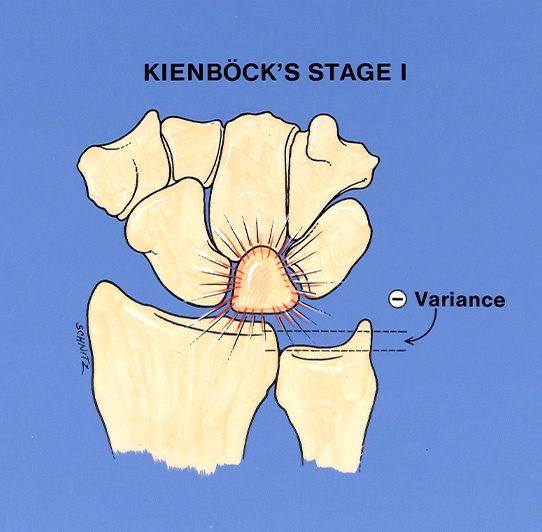Don’t Shrug Off Shoulder Joint Pain: Shoulder Inflammation Can Signal a Serious Problem

The shoulder is one of the hardest-working parts of the body, and most people experience painful shoulder inflammation at some point in their lives. Whether you have been injured in a car accident or just have a lot of miles on your shoulders, it’s not uncommon—as you age or after an injury—to notice pain and tightness when you reach for a high shelf, lift a heavy object, or roll onto your side in bed.
The shoulder joint is a complex structure of muscles, bones, and tendons where the upper arm bone, shoulder blade, and collarbone come together. Many shoulder problems are associated with swelling and tenderness from inflammation, which also reduces mobility and complicates daily activities. In most cases, effective treatment for an inflamed shoulder starts with seeing a specialist to identify the source of the problem.
Addressing shoulder inflammation symptoms as soon as you discover them can prevent erosion of the cartilage and other long-term damage. Your doctor may be able to reduce shoulder inflammation with a simple regimen of rest, ice, medicine, or therapy. In 50 percent of cases, pain goes away within six months.
Read on to learn more about shoulder pain and how to get rid of shoulder inflammation.
Causes of Shoulder Inflammation
Unless you have suffered an acute injury from sports or an accident, you must be wondering, “Why is my shoulder inflamed?” The answer could be ordinary wear and tear, tendon damage, or a chronic condition like arthritis.
Here’s a closer look at some of the injuries and conditions most commonly associated with shoulder inflammation.
Osteoarthritis
Osteoarthritis is a degenerative joint disease caused by wear and tear. It’s often referred to as “bone-on-bone” arthritis because it’s characterized by a grinding sensation. Osteoarthritis damages the soft lining that lets a joint move smoothly. Shoulder inflammation could be a warning sign of osteoarthritis.
Telltale symptoms of OA in the shoulder are:
- Pain when lifting the arm overhead
- Popping or grinding noises
- Pain while sleeping or during activities
- Limited range of motion
Psoriatic Arthritis
Psoriasis is an immune-system disorder that affects the skin, causing scaly, inflamed patches. When the same inflammatory response attacks the joints, it’s called psoriatic arthritis. About 15 to 30 percent of people with psoriasis also develop psoriatic arthritis. It’s possible, but uncommon, to develop arthritis without the skin condition.
Psoriatic arthritis can cause stiffness and pain in various joints, including the shoulder. Skin lesions, rashes, and flaky or pitted nails might occur as well.
Use our at-home checklist to find out if it’s time to see a shoulder pain specialist
Rheumatoid Arthritis
Rheumatoid arthritis (RA) is a chronic autoimmune condition that can affect various joints and other body systems, such as the eyes, lungs, and heart. RA develops when the immune system mistakenly attacks the joints, causing painful swelling in their lining.
Signs of RA in a shoulder joint include:
- Pain, especially in the back of the shoulder
- Swelling
- Stiffness
- Locking up
RA most commonly affects smaller joints in the upper and lower extremities, typically bilaterally or the same joint on both sides of the body.
Read Annie’s patient story to learn more about the effects of RA on joints and find out how she’s back to doing what she loves after receiving arthritis care from Indiana Hand to Shoulder Center.
Shoulder Tendon Inflammation
Tendonitis and Bursitis
Inflammation can be a symptom of strained or damaged tendons. Most people perform repetitive motions and overuse the shoulder joint in daily life. When we don’t maintain joint health with stretching and strength training, everyday activities take a toll on the tendons that hold shoulder muscles and bones together.
Tendonitis and bursitis are similar conditions. Both lead to restricted movement and dull-to-severe pain. As the name suggests, tendonitis is inflammation of the rotator cuff or bicep tendon and can be caused by an acute injury or chronic usage.
Bursitis refers to chronic inflammation of the bursae. The bursae are small sacs of fluid that cushion joints. Throwing a ball frequently or regularly applying pressure to a joint, like leaning on one’s elbows for extended periods, can cause bursitis in the shoulder.
Tendon Tears
A partial or complete rotator cuff tendon tear is one of the most common causes of shoulder pain. Damage can stem from normal wear and tear, repetitive motions, or an acute injury.
Wear-and-tear cases occur gradually and may not even hurt. An acute tear is noticeable—it happens suddenly with a popping or snapping sound, making it difficult to lift the arm.
Inflammation occurs at the site of the injury. You might notice pain and stiffness when performing these activities:
- Combing your hair
- Deadlift exercises at the gym
- Reaching overhead or behind your back:
- Lying on the injured side
Rotator cuff tears cause a double dose of inflammation. Not only is the site of the injury affected, but a tear causes other problems in the shoulder. A torn rotator cuff can’t perform its job of stabilizing the shoulder joint, resulting in joint friction and extra stress that adds to the inflammation.
61-year-old former powerlifting grandpa gets his life back with rotator cuff surgery
Gout
Gout is a type of arthritis. It’s caused by deposits of uric acid crystals in the joints.
Gout usually strikes the big toe but it can also occur in the shoulder on rare occasions. Unlike other forms of arthritis, gout comes on as sudden, severe pain in the joint. An attack produces a burning feeling on the skin and is tender to the touch. Stiffness and reduced motion are common symptoms.
Calcium Pyrophosphate Deposition Disease (CPPD, or Pseudogout)
CPPD is nicknamed “pseudogout” because it’s also caused by crystal deposits in the joints and produces sudden episodes of pain and swelling. The symptoms of these calcium crystals mimic gout with bursts of swelling, stiffness, pain, and warmth of the skin, but they are less severe. CPPD can occur in many joints, including the shoulder.
Signs Your Shoulder Is Inflamed
You may have shoulder inflammation if you experience pain, swelling, redness, and warmth of the skin. More specific indicators include:
- Pain intensifies when you lift your arm overhead
- You have a loss of motion
- Your shoulder feels stiff
- You see noticeable swelling around the joint
- Your shoulder feels tender to the touch
- It’s difficult to get dressed
- It hurts to pull on a seatbelt
- You hear a clicking sound in the joint
The causes of shoulder inflammation have overlapping symptoms. A shoulder specialist can pinpoint the issue to develop the safest and most effective treatment plan.
How to Prevent an Inflamed Shoulder
Common exercises and lifestyle adjustments are easy and effective ways for most people to prevent shoulder inflammation.
When participating in sports, make sure to warm up and stretch properly afterward, ice or heat soreness as necessary, and rest the joints.
If your job puts pressure on your shoulders by requiring you to lift heavy items or reach overhead repeatedly, you should know how to reduce shoulder inflammation. Strengthening and stretching the shoulder can slow down the painful effects of wear and tear.
Regular exercise, good posture, and a proper ergonomic desk setup go a long way toward preventing shoulder inflammation.
Diagnosing Shoulder Inflammation
Expect your specialist to use a combination of physical exams, patient history, and tests to diagnose the cause of your shoulder inflammation.
What Happens When You See a Shoulder Specialist
At an appointment with a shoulder specialist, they will ask about your family and personal medical histories, regular activities, and pain points in the shoulder. A physical exam might measure your range of motion and muscle strength. They may also use imaging technologies to make a diagnosis.
- X-rays can detect bone issues and signs of osteoarthritis.
- MRIs help reveal signs of tears, tendonitis, bursitis, or lesions in the cartilage.
Is the pain in your dominant arm a rotator cuff tear?
Bloodwork may also be used to find markers of autoimmune diseases like rheumatoid arthritis.
Treatments for Shoulder Inflammation
Now let’s look at how to get rid of shoulder inflammation, which conditions respond well to noninvasive treatments and which cases may require surgery for lasting relief..
Medications Used to Treat Inflamed Shoulders
Mild cases of shoulder inflammation can respond well to non-steroidal anti-inflammatory drugs, such as ibuprofen and naproxen, and topical ointments with menthol. Make sure to follow the doctor’s recommended dosage.
Corticosteroid injections or oral medications may be prescribed for more severe inflammation.
For rheumatoid arthritis, disease-modifying anti-rheumatic drugs and biological treatments such as stem-cell injections are options.
Occupational Therapy for Shoulder Inflammation
Exercises can target restoring strength and range of motion with the goal of performing the patient’s daily activities.
Shoulder Surgery
In the most severe tissue and tendon damage cases, a doctor might turn to minimally invasive arthroscopy to remove inflamed tissue with a short recovery time. Major joint damage may require a shoulder replacement.
73-year-old returns to marathons after reverse total shoulder replacement
Seeing a Shoulder Specialist for Care
An experienced orthopedic surgeon is the best choice for diagnosing the source of your shoulder inflammation and guiding your recovery.
Specialized treatment can make the most precise diagnosis quickly so treatment can begin before further damage is done. If it goes untreated, shoulder inflammation can get worse, causing joint damage and more pain.
Why Choose the Experts at Indiana Hand to Shoulder Center
The esteemed surgeons at IHTSC have a reputation for repairing the toughest-to-treat shoulder issues with industry-leading outcomes. Our doctors are dedicated to helping patients overcome shoulder pain and recover joint function so they can continue the activities they love.
If you’re experiencing symptoms of shoulder inflammation, schedule an appointment with a specialist at IHTSC. Call 317-875-9105 to book a consultation or schedule online.
You Might Also Like:
Disclaimer: The materials on this website have been prepared for informational purposes only and do not constitute advice. You should not act or rely upon any medical information on this website without a physician’s advice. The information contained within this website is not intended to serve as a substitution for a thorough examination from a qualified healthcare provider. The display of this information is not intended to create a health care provider-patient relationship between the Indiana Hand to Shoulder Center and you.



